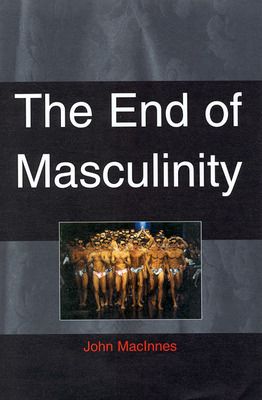End of Masculinity
1st Edition
0335232191
·
9780335232192
© 1998 | Published: February 16, 1998
Why does masculinity seem obvious yet prove impossible to define?What has caused the erosion of men's power and will progress towards sexual equality continue?How political is the personal?This book explains why both popular and academic commentators…
Read More
Request More Info
After you purchase your eBook, you will need to download VitalSource Bookshelf, a free app or desktop version here. Then login or create an account and enter the code from your order confirmation email to access your eBook.
- Access the eBook anytime, anywhere: online or offline
- Create notes, flashcards and make annotations while you study
- Full searchable content: quickly find the answers you are looking for
Preface and acknowledgements
The genesis of masculinity
The fetishism of sexual difference and its secret
The crisis of masculinity and the politics of identity
The paradoxes of sex and gender
Gender as socialization theory
Freud's three essays
The collapse of patriarchy and the origins of gender
kinship and the traffic in women
Thomas Hobbes
social contract and the rise of universalism
Why the personal is not political
Bibliography
Index.
The genesis of masculinity
The fetishism of sexual difference and its secret
The crisis of masculinity and the politics of identity
The paradoxes of sex and gender
Gender as socialization theory
Freud's three essays
The collapse of patriarchy and the origins of gender
kinship and the traffic in women
Thomas Hobbes
social contract and the rise of universalism
Why the personal is not political
Bibliography
Index.
- Why does masculinity seem obvious yet prove impossible to define?
- What has caused the erosion of men's power and will progress towards sexual equality continue?
- How political is the personal?

